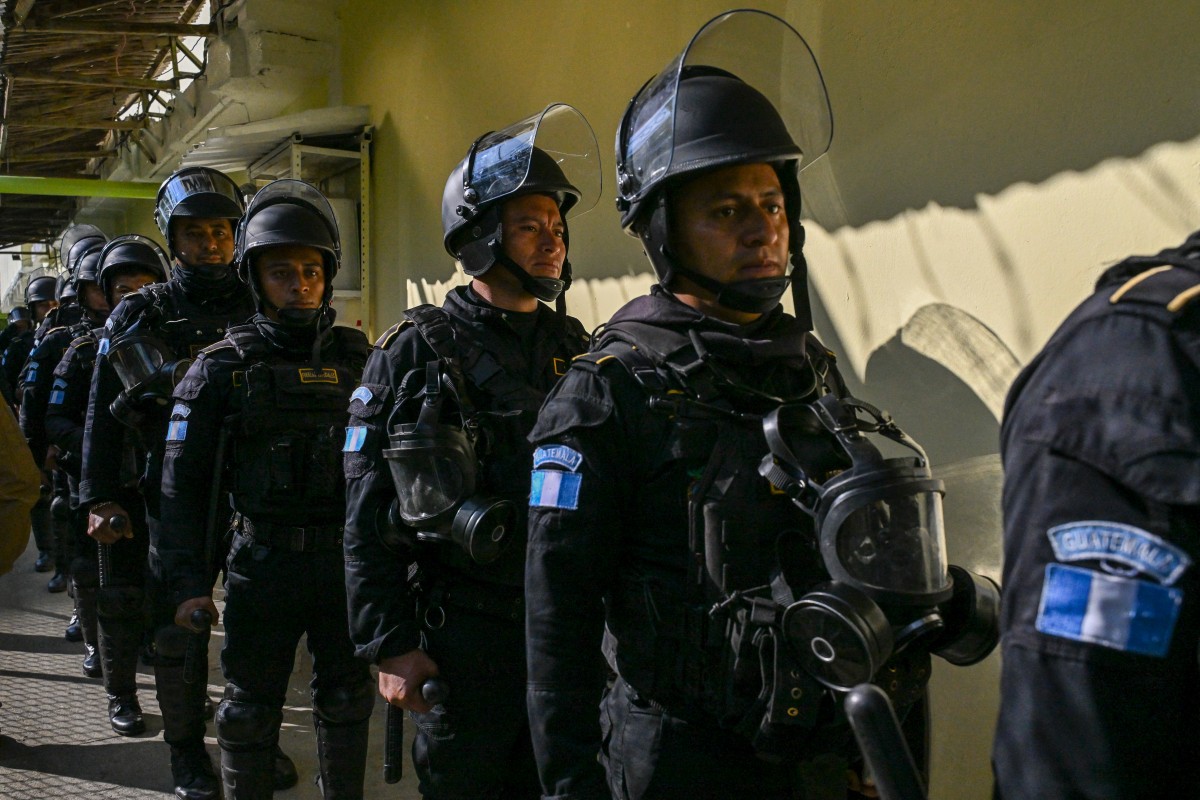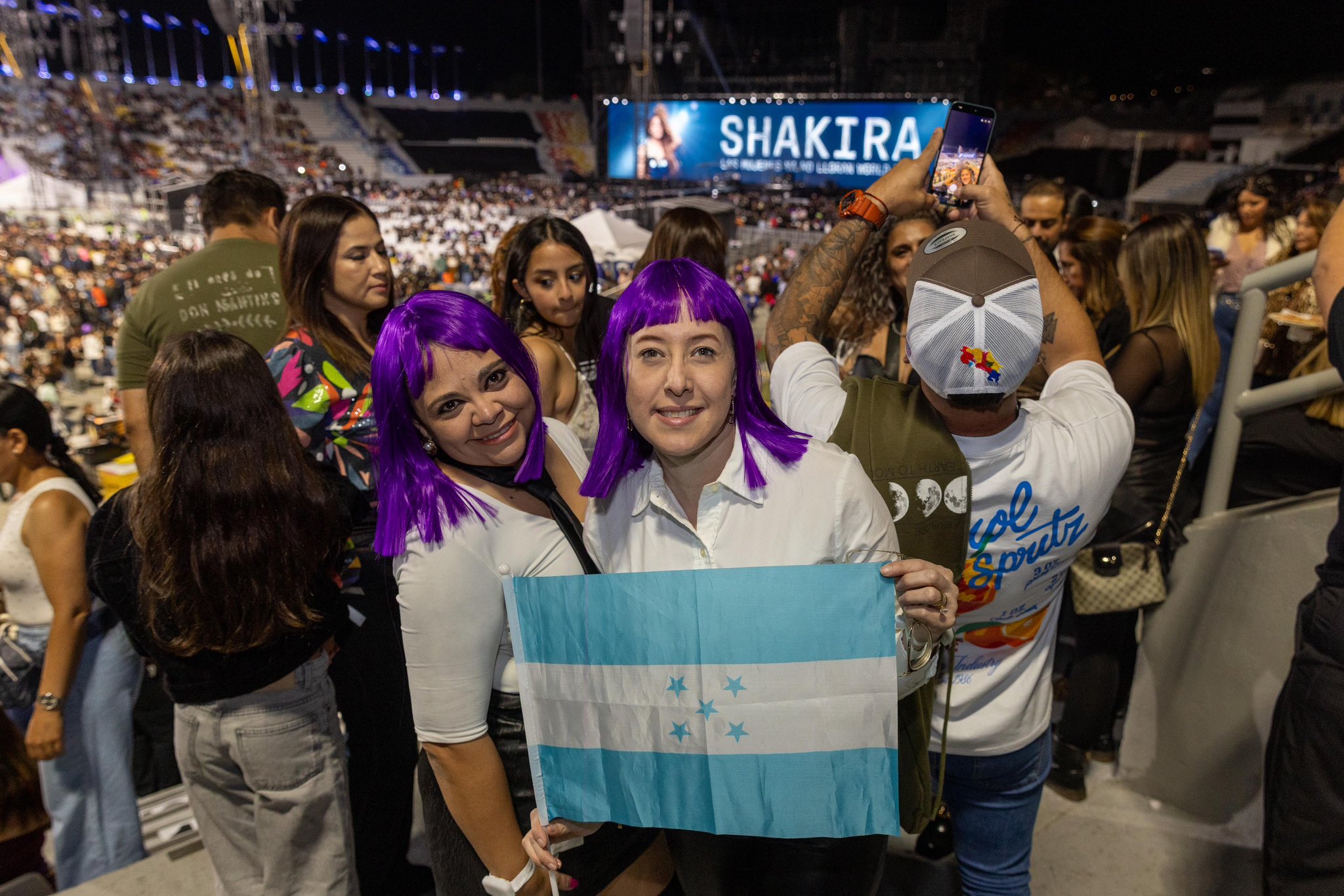Central America
El Salvador extends state of emergency to curb gang violence

AFP
El Salvador’s lawmakers on Sunday extended a state of emergency for another month at the request of President Nayib Bukele, after it was imposed in late March to stamp out a wave of deadly gang violence.
The measures were initially enacted March 27 after a weekend in which 87 people were killed in gang-related violence, expanding police powers so that they could arrest members without a warrant.
Since then, more than 16,000 people have been arrested, and Bukele on Sunday requested lawmakers to extend the state of emergency for another month.
After summoning members to a session, Ernesto Castro, president of the Legislative Assembly — controlled by Bukele’s ruling party — declared that they had approved the extension, by 67 out of 84 votes.
The new decree states that “security conditions persist which urgently demand the extension… due to the continuation of the circumstances which motivated it,” he said.
Once Bukele signs the decree, the extension begins on Tuesday.
Besides arrests without a warrant, the emergency measures also restrict freedom of assembly, while telephone calls and emails can be intercepted without a court order.
Also on Sunday, they approved another law to “simplify and facilitate” the acquisition of tax-free goods and render services by the government to address the emergency.
The authorities have said they are planning to build new prisons to hold the thousands of gang members they detain.
– Crackdown –
Bukele hailed the extension, calling it “the definition of democracy.”
“More than 1,000 terrorists captured on this day alone. More than 17,000 in just 30 days,” he tweeted. “We continue… #WarAgainstGangs.”
The wave of detentions is unprecedented in a country that has suffered decades of violent crime driven by powerful gangs such as Mara Salvatrucha (MS-13) and Barrio 18.
The country’s gangs have about 70,000 members, of whom 32,000 are now incarcerated as a result of the crackdown, according to authorities.
Lawmakers had also approved in early April a reform to punish gang members with up to 45 years in prison — a sharp increase to the original maximum penalty of nine years.
Other legislation also approved this month criminalizes disseminating gang-related messages in the media, with penalties of up to 15 years in jail. Journalists have warned that this reform could target certain forms of reporting.
El Salvadoran NGOs asked the judiciary this week to declare that legislation unconstitutional.
Such broad and swift enactment of powers granted to the military and police has drawn alarm from local and international human rights organizations.
The 40-year-old president, elected in 2019, enjoys broad support in El Salvador over his promises to fight organized crime and improve security in the violence-wracked country.
Central America
Guatemala isolates Barrio 18 leader after attacks that killed 11 police

Guatemalan authorities have placed a leader of the Barrio 18 gang in an isolated cell without الكهرباء or “privileges” after he was accused of triggering a recent wave of violence that left 11 police officers dead, the government said on Sunday.
Members of Barrio 18, which is designated as a “terrorist” organization by both the United States and Guatemala, carried out the killings on January 18 in retaliation for the government’s takeover of three prisons that had been under the control of inmates linked to the group.
In response to the attacks, President Bernardo Arévalo declared a month-long state of siege, arguing that gang members were seeking better conditions in prison or transfers to lower-security facilities.
In a message posted on X alongside photographs, Arévalo announced the isolation of Aldo Dupie, also known as “El Lobo,” one of the gang leaders who allegedly directed the uprisings.
Images released by the government show Dupie inside a small cell with narrow windows, built from metal containers, in a secured area of the Renovación I prison in southern Guatemala — the same facility where the hostage-taking riot took place.
With a shaved head and a stern expression, the gang leader appears alone and in handcuffs, according to the photographs.
Guatemala’s prison system said the “new area,” protected by metal fencing and barbed wire, will house high-risk inmates who will remain without privileges or electricity.
Sports
Shakira ignites El Salvador with near sold-out residency at Mágico González Stadium

The recently renovated Jorge “Mágico” González Stadium is rolling out the red carpet for Colombian superstar Shakira, whose string of concerts has sold out almost entirely, confirming the powerful bond between the artist and Salvadoran fans.
The scale of the experience begins as soon as attendees arrive at the venue. Outside the stadium, organizers have installed several photo spots so concertgoers can capture a souvenir from the major event.
Fans attending the Las Mujeres Ya No Lloran World Tour will witness a top-tier visual production, where technology and robotic lighting effects will shape an atmosphere that shifts dramatically from one segment of the show to another — moving from the intensity of ’90s rock to the festive explosion of urban pop.
Security and crowd management have been top priorities, with a coordinated operation aimed at ensuring smooth entry and exit, allowing spectators to focus solely on enjoying hits that have defined generations.
Beyond the music, the event marks a milestone for the country’s live-entertainment industry, positioning El Salvador as a destination capable of hosting artist residencies once reserved for cities such as Las Vegas or London.
The excitement is already visible across the capital: hotels are at full capacity and local businesses are riding the wave of enthusiasm sparked by the latest songs from the Colombian star.
Central America
Salvadoran fans plan birthday surprise for Shakira at historic show

The president of Shakira’s Fan Club in El Salvador was interviewed by Diario El Salvador on Saturday as she made her way to her entrance gate at Jorge “Mágico” González Stadium, ahead of the historic concert the Colombian superstar is set to perform in the country.
Before the first of the five shows that make up Shakira’s Salvadoran residency, the fan leader revealed that supporters had prepared a special surprise for the singer, who turned 49 on February 2.
“Today I’m here around the stadium with the props we made for her celebration, with postcards and her songs. We also have kits ready to sing ‘happy birthday’ to our She Wolf,” she said.
She explained that the group used social media to ask fans seated in the Ultra Platinum and Platinum sections to find them and pick up birthday pennants, party headbands, balloons and whistles. The idea is to sing “happy birthday” while Shakira introduces her band, offering what they describe as a special Central American welcome.
“For me, she has been a megastar since the first time I saw her in 1996. I saw her again in 2006, here at the stadium. Last year we traveled to Colombia three times to see her, and today I’m beyond excited that she chose El Salvador,” the fan said.
She added that visitors from across Central America and other countries have traveled for the concerts and will also have the opportunity to discover the country. “I’m very excited about everything she makes us feel,” she said.
-

 Central America4 days ago
Central America4 days agoPanama Will Not Be Threatened, President Says Amid Rising Tensions With China
-

 International4 days ago
International4 days agoDíaz-Canel Calls for Talks With Washington Without Pressure as U.S. Tightens Oil Sanctions
-

 International4 days ago
International4 days agoColombia to Send High-Level Delegation to Ecuador to Ease Trade Tensions
-

 International4 days ago
International4 days agoVenezuela Debates Broad Amnesty Law Covering 27 Years of Chavismo
-

 Central America2 days ago
Central America2 days agoSalvadoran fans plan birthday surprise for Shakira at historic show
-

 Central America4 days ago
Central America4 days agoBukele’s Approval Rating Climbs to 91.9% in El Salvador, Survey Shows
-

 Central America1 day ago
Central America1 day agoGuatemala isolates Barrio 18 leader after attacks that killed 11 police
-

 Sports2 days ago
Sports2 days agoShakira ignites El Salvador with near sold-out residency at Mágico González Stadium
-

 International4 days ago
International4 days agoSuper Bowl Halftime Show Puts Bad Bunny—and Immigration Politics—Back in the Spotlight


























